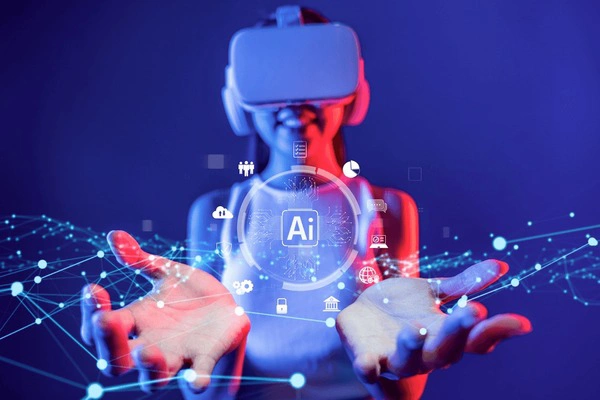
AI in Game Development: Revolutionizing Player Experiences
Artificial Intelligence is reshaping the world of video games by making them more dynamic and engaging. By utilizing advanced algorithms, AI creates responsive game environments, offering players a more immersive experience. This innovation not only enhances gameplay but also democratizes game design, making quality content accessible to diverse audiences.
Maya Turner
29/11/2024 - 7 months ago

The Rise of AI in Gaming
Artificial Intelligence (AI) has become a cornerstone in the realm of video games, transforming how developers create content and players interact with it. As technology advances, AI's ability to generate dynamic and engaging content has reshaped the gaming landscape. This innovative tool allows developers to craft more complex and immersive worlds, making gameplay more exciting for users.
One of the most significant contributions of AI in game development is procedural generation. This technique uses algorithms to automatically create vast game environments, characters, and narratives. Developers can now build expansive worlds without manually designing every detail, saving time and resources while providing players with unique experiences each time they play.
Moreover, AI-driven games can adapt to a player’s skill level, offering personalized challenges that keep users engaged. These adaptive algorithms analyze player behavior and adjust the game's difficulty in real-time, ensuring that the experience remains challenging yet enjoyable. This adaptability is crucial for maintaining player interest and enhancing the overall gaming experience.
Creating Responsive Game Environments
AI's role in creating responsive game environments is pivotal in offering players a more realistic and interactive experience. Through advanced AI techniques, games can simulate real-world physics, weather patterns, and even intelligent non-player characters (NPCs) that react dynamically to players' actions. This realism adds depth to the gameplay, making players feel like they are part of a living, breathing world.
In addition to realistic environments, AI also enables games to offer real-time feedback and consequences to a player's decisions. This not only impacts the storyline but also encourages players to think critically about their choices, enhancing the strategic elements of the game. Such interactivity makes games more engaging and rewarding.
By integrating AI, developers can also create more accessible games that cater to a broader audience. Games can be programmed to offer hints or assistance to players who might struggle, thus democratizing gaming by ensuring that everyone, regardless of skill level, can enjoy and complete the game. This inclusivity is a major step forward in making gaming more accessible and enjoyable for all.
Enhancing Player Engagement
Player engagement is a critical component of any successful video game, and AI is playing an essential role in enhancing this aspect. Through machine learning, games can analyze player preferences and tailor content to better suit their tastes. This means that whether a player prefers action-packed sequences or complex puzzles, the game can adapt its offerings accordingly.
Moreover, AI can help create emotionally resonant narratives by personalizing storylines based on player choices. This element of choice and consequence makes the game more immersive, as players see the direct impact of their decisions on the game's world and characters. Such personalized experiences can lead to increased emotional investment in the game.
By focusing on player engagement, AI not only enhances the current gaming experience but also fosters long-term loyalty. Players are more likely to return to games that offer personalized, engaging experiences. This loyalty translates to a dedicated player base, which is essential for the ongoing success of any game.
The Future of AI in Game Development
The future of AI in game development looks promising as technology continues to advance. As AI algorithms become more sophisticated, we can expect even more realistic and engaging game environments. These advancements will allow developers to push the boundaries of creativity, offering players unprecedented experiences.
One exciting prospect is the development of AI that can create content on-the-fly, adjusting not only to player actions but also to emerging trends and player feedback. This could lead to games that evolve over time, offering fresh content long after the initial release. Such dynamic content creation could revolutionize how games are developed and consumed.
Ultimately, AI's role in game development is set to continue growing, enhancing both the efficiency of game production and the quality of player experiences. As this technology evolves, it will likely lead to more inclusive and accessible gaming environments, ensuring that everyone can enjoy the benefits of this digital entertainment revolution.


















